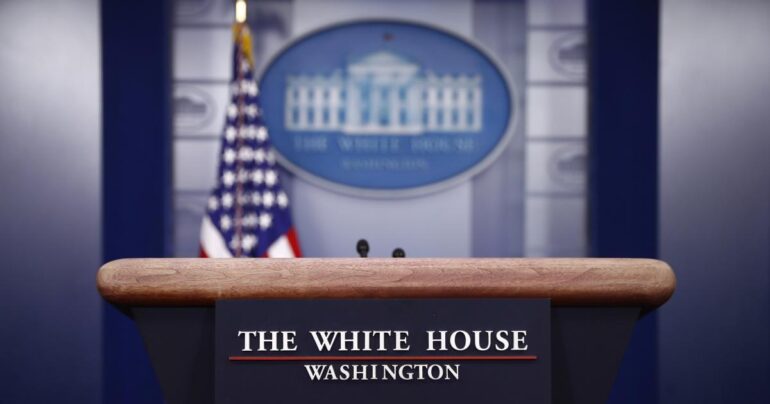TL;DR:
- White House introduces the “AI Cyber Challenge” to leverage artificial intelligence in identifying and resolving software vulnerabilities.
- Cybersecurity researchers and small businesses can win up to $18.5 million in prizes, fostering innovation in the field.
- Prominent AI companies like Anthropic, Google, Microsoft, and OpenAI contribute their technology to the challenge.
- The initiative addresses rising cyber supply-chain risks across government and private sectors.
- Open Source Security Foundation (OpenSSF) collaborates to secure critical open-source software.
- The challenge spans multiple phases, culminating in a prestigious finale at DEF CON hacker convention.
- President Biden’s Chief Science and Technology Adviser, Arati Prabhakar, highlights the administration’s commitment to responsible AI advancement.
Main AI News:
In a bold move aimed at bolstering the nation’s cyber resilience, the White House has officially launched the groundbreaking “AI Cyber Challenge.” This visionary competition, spearheaded by the Defense Advanced Research Projects Agency (DARPA), is set to revolutionize the cybersecurity landscape by harnessing the power of artificial intelligence to identify and rectify software vulnerabilities.
With a staggering total of $18.5 million in coveted prizes up for grabs, participating teams will vie for supremacy in the AI Cyber Challenge. Additionally, a generous $7 million prize pool has been earmarked for small businesses that choose to take part. This commitment to incentivizing innovation underscores the government’s resolve to fortify national cyber defenses.
One of the cornerstones of this challenge lies in its strategic partnership with leading AI luminaries, including Anthropic, Google, Microsoft, and OpenAI, all of whom have pledged their cutting-edge technologies for the competition. This strategic collaboration underscores the commitment of the Biden administration to harness the collective might of the private sector in tackling complex cybersecurity issues.
The impetus behind the AI Cyber Challenge emerges from the escalating concerns surrounding cyber supply-chain vulnerabilities across both government and private sectors. The urgency of this initiative is accentuated by the Office of Management and Budget’s directive last September, mandating rigorous security assessments for software products before integration into federal agency systems.
This visionary endeavor further aligns with the recent pact forged between seven premier AI corporations facilitated by the Biden administration. Concurrently, legislative proposals spearheaded by Senate Majority Leader Chuck Schumer have set the stage for shaping the future regulatory landscape of AI technology.
Anne Neuberger, Deputy National Security Advisor for Cyber and Emerging Technology, expressed the administration’s eagerness to leverage the challenge’s outcomes to bolster federal cybersecurity efforts. The White House eagerly anticipates solutions that can swiftly pinpoint and rectify vulnerabilities in critical systems like energy grids and transportation networks.
Given the competition’s sharp focus on open-source software, the guidance of the Open Source Security Foundation (OpenSSF), a subsidiary of the Linux Foundation, will be invaluable. This partnership is poised to ensure the broadest possible impact, securing critical software components that underpin our interconnected society.
DARPA Deputy Director Rob McHenry emphasized that the ripples of this initiative will extend far beyond the federal domain. The endeavor is set to seamlessly integrate secure software development practices, positively influencing software ecosystems at large.
The AI Cyber Challenge will unfold in multiple phases, commencing with a qualifying event in Spring 2024. The crème de la crème of these contenders—up to 20 teams—will earn their spot in the semifinals during DEF CON 2024. From this elite pool, up to five teams will progress, securing both prestige and monetary rewards, culminating in the climactic final showdown at the DEF CON hacker convention in 2025.
As President Biden’s Chief Science and Technology Adviser, Arati Prabhakar, embarks on her journey to the DEF CON conference in Las Vegas, she symbolizes the administration’s steadfast commitment to responsible AI advancement. This event offers a platform to showcase the administration’s tireless efforts in propelling AI technology toward a secure and promising future.
Conclusion:
The launch of the AI Cyber Challenge marks a pivotal moment in the cybersecurity landscape. By tapping into the potential of AI and fostering collaboration between industry leaders and innovators, the White House is driving significant advancements in identifying and rectifying software vulnerabilities. This initiative is poised to elevate the standards of cyber defense, secure critical systems, and stimulate innovation within the cybersecurity market.

